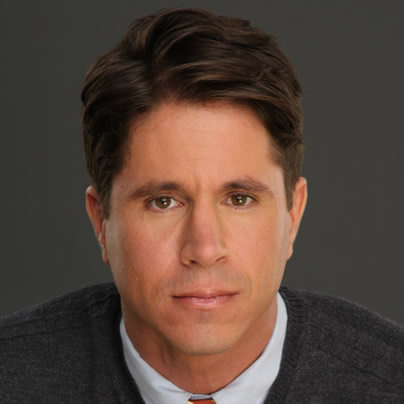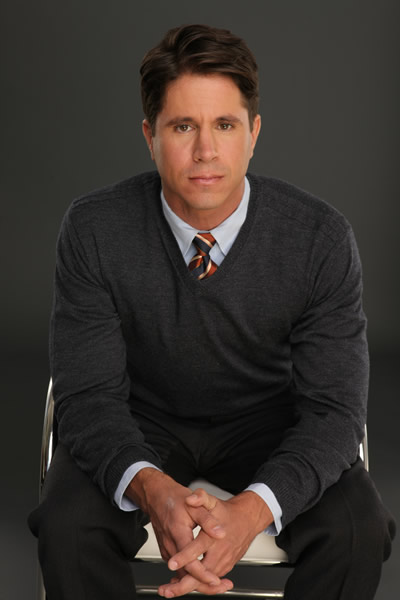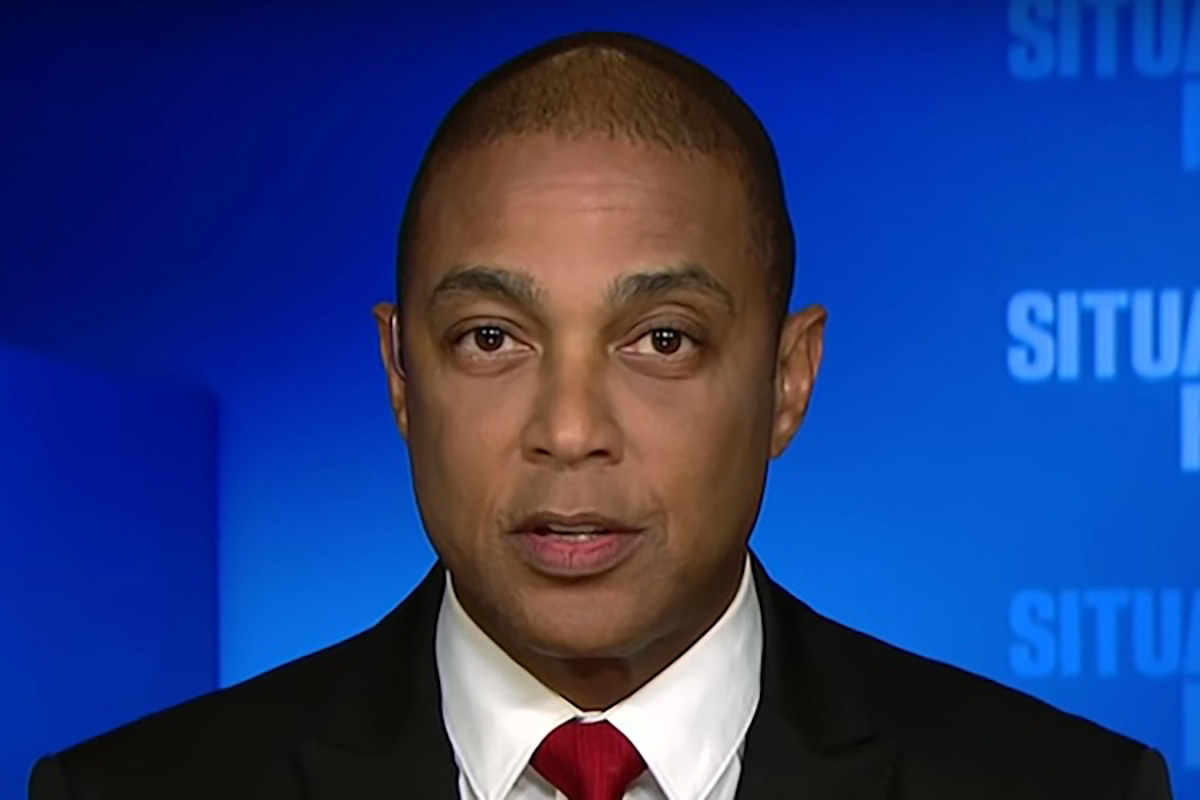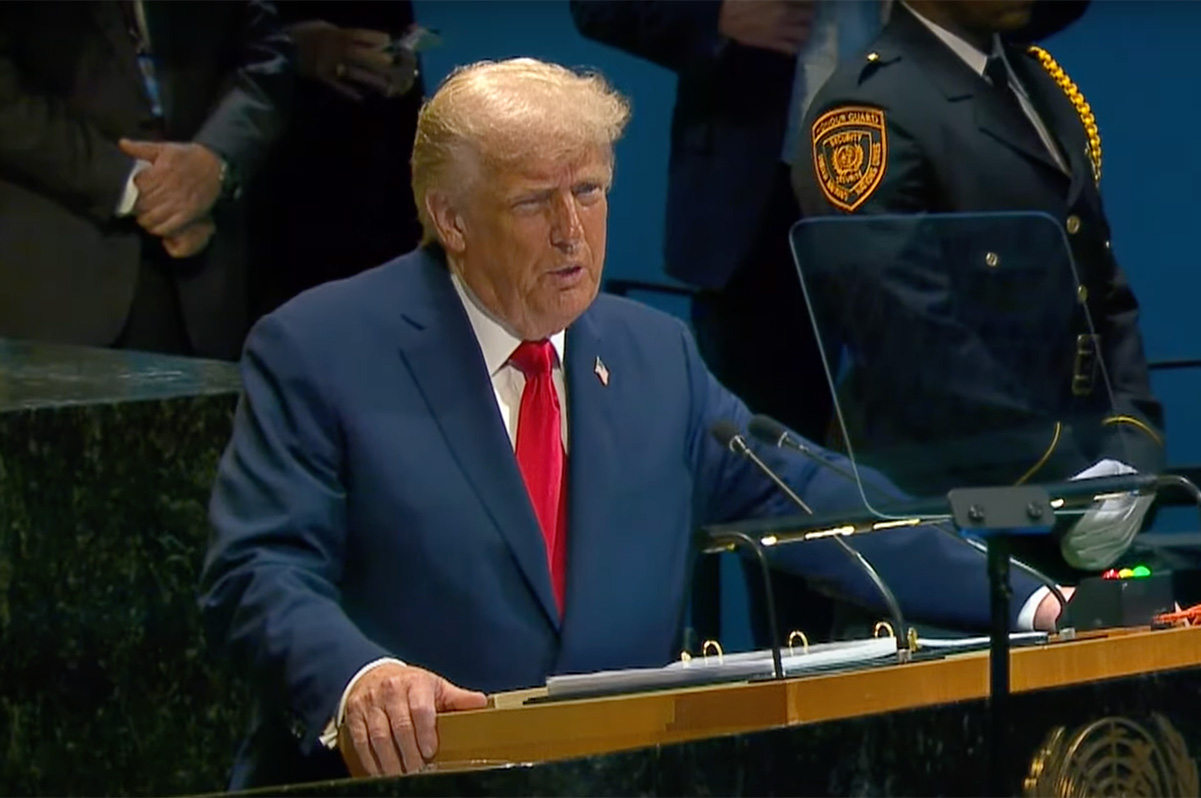National
Meet GLAAD’s new firebrand-in-chief
Plainspoken Graddick working to restore media watchdog after scandal


After a tumultuous 2011, and nearly a year without a permanent leader, GLAAD announced its new president is Herndon Graddick. (Courtesy photo)
The first thing you discover about Herndon Graddick, the new president of the Gay & Lesbian Alliance Against Defamation, is that he’s direct and plainspoken —he doesn’t mince words the way more seasoned LGBT leaders do.
Earlier this week, Graddick told Europe’s Gay Star News, “I think it’s finally time for us to grab our power and really use it and make sure that we’re not sort of treated as second-class citizens anymore. I intend to do that in this role at GLAAD.”
He added that when he finally met other gay people after moving to California at 19, he was “pissed off.”
“Everything I had been taught was essentially bullshit,” he said of his epiphany upon coming out and realizing that LGBT youth were being taught they should remain in the closet.
Graddick worked for Current TV, CNN and at a global climate change initiative before becoming GLAAD’s vice president of programs and communication in 2010.
His determination and spirit match those of grassroots activists on the ground, rather than someone trying to appease finicky donors and politicians. And the honesty is a far cry from the political calculus of former President Jarrett Barrios, who resigned in June 2011 after a scandal regarding his role in pushing the FCC to approve AT&T-backed initiatives.
Graddick sat down with the Blade to discuss his role at GLAAD since that time and his vision for the future.
WASHINGTON BLADE: What was your role at the organization before being picked by the board for this position?
HERNDON GRADDICK: I was the head of programs and communications, so I oversaw all of our activist work, basically everything but the fundraising and sort of the physical operations of the organization, so everything we do in the movement.
BLADE: You’ve got a thorough handle on the inner workings of the organization, especially in terms of the programming?
GRADDICK: Yes I have. One of the reasons why I wanted to do this job is I feel like the work we’ve done in the past year has been really making a difference, and I’ve felt really satisfied by that. So I wanted to put my name in the ring for the president’s spot because I want that to continue and I wanted to do even more of it. And so it’s really a product of my believing in the work that I put myself up for this job. I’m humbled and take with seriousness the duties that the role has.
BLADE: What would you list as GLAAD’s biggest successes in the last year?
GRADDICK: The media awards are, as you know, how we support our work. They’re a fundraiser, they get the most attention in the U.S. and in the world, because celebrities are inevitably what people pay the most attention to. But GLAAD’s work is from the grassroots to the local, state and national levels. Some of that work gets a lot of attention in the press, and some of it doesn’t. But nonetheless all of it is important.
I would say that our Commentator Accountability Project that we just launched is something that’s really important to me, and works toward what I wanted to do when I came to GLAAD. To hold anti-gay activists accountable to the full breadth of their animus toward the gay community, and give journalists an easy access resource of what these anti-gay people have actually said.
And recently, Miss Universe has agreed to change their rules to allow the inclusion of transgender women, and we’re waiting to see the details of that, but we’ve gotten the full-throated promise from them that those details were coming, and I think that the fact that transgender women are now going to be participating alongside everybody else in the Miss Universe pageant, is a sign of the times that the world is changing to view LGBT people just like anybody else.
I could really go on and on about different things that I’ve been proud of, but I think in general our mission is creating a media where LGBT people can thrive, and where LGBT youth don’t have their self-esteem dictated by negative portrayals in the media and we’re able to be happy and live our lives just like anybody else.
BLADE: GLAAD’s had some great highs in the past year, but also some lows. How do you plan to continue to repair GLAAD’s public image in the LGBT community?
GRADDICK: Well, I’ve been really flattered and humbled by the press that we’ve received around our recent changes, and when I read that press, what I really think is what people are speaking to now is the strength of our programmatic work in the last nine months, and I think that people are really noticing that the work that we’re doing is having an impact. So I’m really encouraged by that, and I take inspiration in that. And my personal view is that we’re all in this together, and so I’m really grateful for the work that activists and bloggers and other movement organizations — it feels like we’re working together better than I’ve seen in the past, and I’m really encouraged by that.
I really look forward to working with the movement and the blogosphere and the LGBT press. Let’s keep our eye on the ball, and let’s fight for LGBT equality, and keep our sense of who the enemy is, and that’s people who would deprive us of all the rights and privileges that are afforded to every other American. I really take great pride in the fact that I’m in this position of helping to do so. I thank everybody out there for their individual efforts, and GLAAD is always open to hear the support, the advice and the criticism telling us where we can do things better and differently. I welcome that.
BLADE: What is your vision for GLAAD going forward?
GRADDICK: I think that over the years GLAAD has been a really effective force for the inclusion of fair and accurate portrayals of LGBT people in media, and my intention is to continue to be that. I think we’ve both been a defensive force against defamation, I think the time is now not just to be defensive, but to really go on the offensive, because we’re sick of not being treated like everybody else, and Americans are behind us and I think that if you really put your finger in the air, you can feel something changing in America. And so it’s my chance to be the tip of the spear — along with other movement organizations and bloggers and activists — to really make sure that this isn’t about asking for us to be treated fairly, it’s about demanding and insuring that we are treated fairly. So my interest in being the head of GLAAD is making sure that happens.
Florida
AIDS Healthcare Foundation sues Fla. over ‘illegal’ HIV drug program cuts
Tens of thousands could lose access to medications

Following the slashing of hundreds of thousands of dollars from Florida’s AIDS Drug Assistance Program, AIDS Healthcare Foundation filed a lawsuit against the Florida Department of Health over what it says was an illegal change to income eligibility thresholds for the lifesaving program.
The Florida Department of Health announced two weeks ago that it would make sweeping cuts to ADAP, dramatically changing how many Floridians qualify for the state-funded medical coverage — without using the formal process required to change eligibility rules. As a result, AHF filed a petition Tuesday in Tallahassee with the state’s Division of Administrative Hearings, seeking to prevent more than 16,000 Floridians from losing coverage.
The medications covered by ADAP work by suppressing HIV-positive people’s viral load — making the virus undetectable in blood tests and unable to be transmitted to others.
Prior to the eligibility change, the Florida Department of Health covered Floridians earning up to 400 percent of the federal poverty level — or $62,600 annually for an individual. Under the new policy, eligibility would be limited to those making no more than 130 percent of the federal poverty level, or $20,345 per year.
The National Alliance of State and Territorial AIDS Directors estimates that more than 16,000 patients in Florida will lose coverage under the state’s ADAP because of this illegal change in department policy. Florida’s eligibility changes would also eliminate access to biktarvy, a widely used once-daily medication for people living with HIV/AIDS.
Under Florida law, when a state agency seeks to make a major policy change, it must either follow a formal rule-making process under the Florida Administrative Procedure Act or obtain direct legislative authorization.
AHF alleges the Florida Department of Health did neither.
Typically, altering eligibility for a statewide program requires either legislative action or adherence to a multistep rule-making process, including: publishing a Notice of Proposed Rule; providing a statement of estimated regulatory costs; allowing public comment; holding hearings if requested; responding to challenges; and formally adopting the rule. According to AHF, none of these steps occurred.
“Rule-making is not a matter of agency discretion. Each statement that an agency like the Department of Health issues that meets the statutory definition of a rule must be adopted through legally mandated rule-making procedures. Florida has simply not done so here,” said Tom Myers, AHF’s chief of public affairs and general counsel. “The whole point of having to follow procedures and rules is to make sure any decisions made are deliberate, thought through, and minimize harm. Floridians living with HIV and the general public’s health are at stake here and jeopardized by these arbitrary and unlawful DOH rule changes.”
AHF has multiple Ryan White CARE Act contracts in Florida, including four under Part B, which covers ADAP. More than 50 percent of people diagnosed with HIV receive assistance from Ryan White programs annually.
According to an AHF advocacy leader who spoke with the Washington Blade, the move appears to have originated at the state level rather than being driven by the federal government — a claim that has circulated among some Democratic officials.
“As far as we can tell, Congress flat-funded the Ryan White and ADAP programs, and the proposed federal cuts were ignored,” the advocacy leader told the Blade on the condition of anonymity. “None of this appears to be coming from Washington — this was initiated in Florida. What we’re trying to understand is why the state is claiming a $120 million shortfall when the program already receives significant federal funding. That lack of transparency is deeply concerning.”
Florida had the third-highest rate of new HIV infections in the nation in 2022, accounting for 11 percent of new diagnoses nationwide, according to KFF, a nonprofit health policy research organization.
During a press conference on Wednesday, multiple AHF officials commented on the situation, and emphasized the need to use proper methods to change something as important as HIV/AIDS coverage availability in the sunshine state.
“We are receiving dozens, hundreds of calls from patients who are terrified, who are confused, who are full of anxiety and fear,” said Esteban Wood, director of advocacy, legislative affairs, and community engagement at AHF. “These are working Floridians — 16,000 people — receiving letters saying they have weeks left of medication that keeps them alive and costs upwards of $45,000 a year. Patients are asking us, ‘What are we supposed to do? How are we supposed to survive?’ And right now, we don’t have a good answer.”
“This decision was not done in the correct manner. County health programs, community-based organizations, providers across the state — none of them were consulted,” Wood added. “Today is Jan. 28, and we have just 32 days until these proposed changes take effect. Nearly half of the 36,000 people currently on ADAP could be disenrolled in just over a month.”
“Without this medication, people with HIV get sicker,” Myers said during the conference. “They end up in emergency rooms, they lose time at work, and they’re unable to take care of their families. Treatment adherence is also the best way to prevent new HIV infections — people who are consistently on these medications are non-infectious. If these cuts go through, you will have sicker people, more HIV infections, and ultimately much higher costs for the state.”
“Patients receiving care through Ryan White and ADAP have a 91 percent viral suppression rate, compared to about 60 percent nationally,” the advocacy leader added. “That’s as close to a functional cure as we can get, and it allows people to live healthy lives, work, and contribute to their communities. Blowing a hole in a program this successful puts lives at risk and sets a dangerous precedent. If Florida gets away with this, other states facing budget pressure could follow.”
The lawsuit comes days after the Save HIV Funding campaign pressed Congress to build bipartisan support for critical funding for people living with or vulnerable to HIV. In May of last year, President Donald Trump appeared to walk back his 2019 pledge to end HIV as an epidemic, instead proposing the elimination of HIV prevention programs at the Centers for Disease Control and Prevention and housing services in his budget request to Congress.
House appropriators, led by the Republican majority, went further, calling for an additional $2 billion in cuts — including $525 million for medical care and support services for people living with HIV.
While Senate appropriators ultimately chose to maintain level funding in their version of the spending bills, advocates feared final negotiations could result in steep cuts that would reduce services, increase new HIV infections, and lead to more AIDS-related deaths. The final spending package reflected a best-case outcome, with funding levels largely mirroring the Senate’s proposed FY26 allocations.
“What the state has done in unilaterally announcing these changes is not following its own rules,” Myers added. “There is a required process — rule-making, notice and comment, taking evidence — and none of that happened here. Before you cut 16,000 people off from lifesaving medication, you have to study the harms, ask whether you even have the authority to do it, and explore other solutions. That’s what this lawsuit is about.”
National
Federal authorities arrest Don Lemon
Former CNN anchor taken into custody two weeks after Minn. church protest

Federal authorities on Thursday arrested former CNN anchor Don Lemon in Los Angeles.
CNN reported authorities arrested Lemon after 11 p.m. PT while in the lobby of a hotel in Beverly Hills, Calif., while he “was leaving for an event.” Lemon’s lawyer, Abbe Lowell, in a statement said his client was in Los Angeles to cover the Grammy Awards.
Authorities arrested Lemon less than two weeks after he entered Cities Church in St. Paul, Minn., with a group of protesters who confronted a pastor who works for U.S. Immigration and Customs Enforcement. (An ICE agent on Jan. 7 shot and killed Renee Good, a 37-year-old Minneapolis woman who left behind her wife and three children. U.S. Customs and Border Protection agents on Jan. 24 shot and killed Alex Pretti, a 37-year-old nurse who worked for the Department of Veterans Affairs, in Minneapolis.)
Lemon insists he was simply covering the Cities Church protest that interrupted the service. A federal magistrate last week declined to charge the openly gay journalist in connection with the demonstration.
“Don Lemon was taken into custody by federal agents last night in Los Angeles, where he was covering the Grammy awards,” said Lowell in his statement. “Don has been a journalist for 30 years, and his constitutionally protected work in Minneapolis was no different than what he has always done. The First Amendment exists to protect journalists whose role it is to shine light on the truth and hold those in power accountable.”
“Instead of investigating the federal agents who killed two peaceful Minnesota protesters, the Trump Justice Department is devoting its time, attention and resources to this arrest, and that is the real indictment of wrongdoing in this case,” Lowell added. “This unprecedented attack on the First Amendment and transparent attempt to distract attention from the many crises facing this administration will not stand. Don will fight these charges vigorously and thoroughly in court.”
Attorney General Pam Bondi on X confirmed federal agents “at my direction” arrested Lemon and three others — Trahern Jeen Crews, Georgia Fort, and Jamael Lydell Lundy — “in connection with the coordinated attack on Cities Church in St. Paul, Minnesota.”
Fort is also a journalist.
At my direction, early this morning federal agents arrested Don Lemon, Trahern Jeen Crews, Georgia Fort, and Jamael Lydell Lundy, in connection with the coordinated attack on Cities Church in St. Paul, Minnesota.
More details soon.
— Attorney General Pamela Bondi (@AGPamBondi) January 30, 2026
Lemon, who CNN fired in 2023, is expected to appear in court in Los Angeles on Friday.
“Freedom of the press is a cornerstone of a free society; it is the tool by which Americans access the truth and hold power to account. But Donald Trump and Pam Bondi are at war with that freedom — and are threatening the fundamentals of our democracy,” said Human Rights Campaign President Kelley Robinson on Friday in a statement. “Don Lemon and Georgia Fort were doing their jobs as reporters. Arresting them is not law enforcement it is an attack on the Constitution at a moment when truthful reporting on government power has never been more important. These are the actions of a despot, the tactics of a dictator in an authoritarian regime.”
The White House
Expanded global gag rule to ban US foreign aid to groups that promote ‘gender ideology’
Activists, officials say new regulation will limit access to gender-affirming care

The Trump-Vance administration has announced it will expand the global gag rule to ban U.S. foreign aid for groups that promote “gender ideology.”
Deputy Secretary of State Christopher Landau in a memo, titled Combating Gender Ideology in Foreign Assistance, the Federal Register published on Jan. 27 notes “previous administrations … used” U.S. foreign assistance “to fund the denial of the biological reality of sex, promoting a radical ideology that permits men to self-identify as women, indoctrinate children with radical gender ideology, and allow men to gain access to intimate single-sex spaces and activities designed for women.”
“Efforts to eradicate the biological reality of sex fundamentally attack women by depriving them of their dignity, safety, and well-being. It also threatens the wellbeing of children by encouraging them to undergo life-altering surgical and chemical interventions that carry serious risks of lifelong harms like infertility,” reads the memo. “The erasure of sex in language and policy has a corrosive impact not just on women and children but, as an attack on truth and human nature, it harms every nation. It is the purpose of this rule to prohibit the use of foreign assistance to support radical gender ideology, including by ending support for international organizations and multilateral organizations that pressure nations to embrace radical gender ideology, or otherwise promote gender ideology.”
President Donald Trump on Jan. 28, 2025, issued an executive order — Protecting Children from Chemical and Surgical Mutilation — that banned federal funding for gender-affirming care for minors.
President Ronald Reagan in 1985 implemented the global gag rule, also known as the “Mexico City” policy, which bans U.S. foreign aid for groups that support abortion and/or offer abortion-related services.
Trump reinstated the rule during his first administration. The White House this week expanded the ban to include groups that support gender-affirming care and diversity, equity, and inclusion programs.
The expanded global gag rule will take effect on Feb. 26.
“None of the funds made available by this act or any other Act may be made available in contravention of Executive Order 14187, relating to Protecting Children From Chemical and Surgical Mutilation, or shall be used or transferred to another federal agency, board, or commission to fund any domestic or international non-governmental organization or any other program, organization, or association coordinated or operated by such non-governmental organization that either offers counseling regarding sex change surgeries, promotes sex change surgeries for any reason as an option, conducts or subsidizes sex change surgeries, promotes the use of medications or other substances to halt the onset of puberty or sexual development of minors, or otherwise promotes transgenderism,” wrote Landau in his memo.
Landau wrote the State Department “does not believe taxpayer dollars should support sex-rejecting procedures, directly or indirectly for individuals of any age.”
“A person’s body (including its organs, organ systems, and processes natural to human development like puberty) are either healthy or unhealthy based on whether they are operating according to their biological functions,” reads his memo. “Organs or organ systems do not become unhealthy simply because the individual may experience psychological distress relating to his or her sexed body. For this reason, removing a patient’s breasts as a treatment for breast cancer is fundamentally different from performing the same procedure solely to alleviate mental distress arising from gender dysphoria. The former procedure aims to restore bodily health and to remove cancerous tissue. In contrast, removing healthy breasts or interrupting normally occurring puberty to ‘affirm’ one’s ‘gender identity’ involves the intentional destruction of healthy biological functions.”
Landau added there “is also lack of clarity about what sex-rejecting procedures’ fundamental aims are, unlike the broad consensus about the purpose of medical treatments for conditions like appendicitis, diabetes, or severe depression.”
“These procedures lack strong evidentiary foundations, and our understanding of long-term health impacts is limited and needs to be better understood,” he wrote. “Imposing restrictions, as this rule proposes, on sex-rejecting procedures for individuals of any age is necessary for the (State) Department to protect taxpayer dollars from abuse in support of radical ideological aims.”
Landau added the State Department “has determined that applying this rule to non-military foreign assistance broadly is necessary to ensure that its foreign assistance programs do not support foreign NGOs and IOs (international organizations) that promote gender ideology, and U.S. NGOs that provide sex-rejecting procedures, and to ensure the integrity of programs such as humanitarian assistance, gender-related programs, and more, do not promote gender ideology.”
“This rule will also allow for more foreign assistance funds to support organizations that promote biological truth in their foreign assistance programs and help the (State) Department to establish new partnerships,” he wrote.
The full memo can be found here.
Council for Global Equality Senior Policy Fellow Beirne Roose-Snyder on Wednesday said the expansion of the so-called global gag rule will “absolutely impact HIV services where we know we need to target services, to that there are non-stigmatizing, safe spaces for people to talk through all of their medical needs, and being trans is really important to be able to disclose to your health care provider so that you can get ARVs, so you can get PrEP in the right ways.” Roose-Snyder added the expanded ban will also impact access to gender-affirming health care, food assistance programs and humanitarian aid around the world.
“This rule is not about gender-affirming care at all,” she said during a virtual press conference the Universal Access Project organized.
“It is about really saying that if you want to take U.S. funds — and it’s certainly not about gender-affirming care for children — it is if you want to take U.S. funds, you cannot have programs or materials or offer counseling or referrals to people who may be struggling with their gender identity,” added Roose-Snyder. “You cannot advocate to maintain your country’s own nondiscrimination laws around gender identity. It is the first place that we’ve ever seen the U.S. government define gender-affirming care, except they call it something a lot different than that.”
The Congressional Equality Caucus, the Democratic Women’s Caucus, the Congressional Hispanic Caucus, the Congressional Asian and Pacific American Caucus, and the Congressional Black Caucus also condemned the global gag rule’s expansion.
“We strongly condemn this weaponization of U.S. foreign assistance to undermine human rights and global health,” said the caucuses in a statement. “We will not rest until we ensure that our foreign aid dollars can never be used as a weapon against women, people of color, or LGBTQI+ people ever again.”
-

 LGBTQ Non-Profit Organizations5 days ago
LGBTQ Non-Profit Organizations5 days agoTask Force urges renewed organizing amid growing political threats
-

 Federal Government5 days ago
Federal Government5 days agoTop Democrats reintroduce bill to investigate discrimination against LGBTQ military members
-

 Russia5 days ago
Russia5 days agoRussia designates ILGA World an ‘undesirable’ group
-

 Virginia5 days ago
Virginia5 days agoFrom the Pentagon to politics, Bree Fram fighting for LGBTQ rights




















